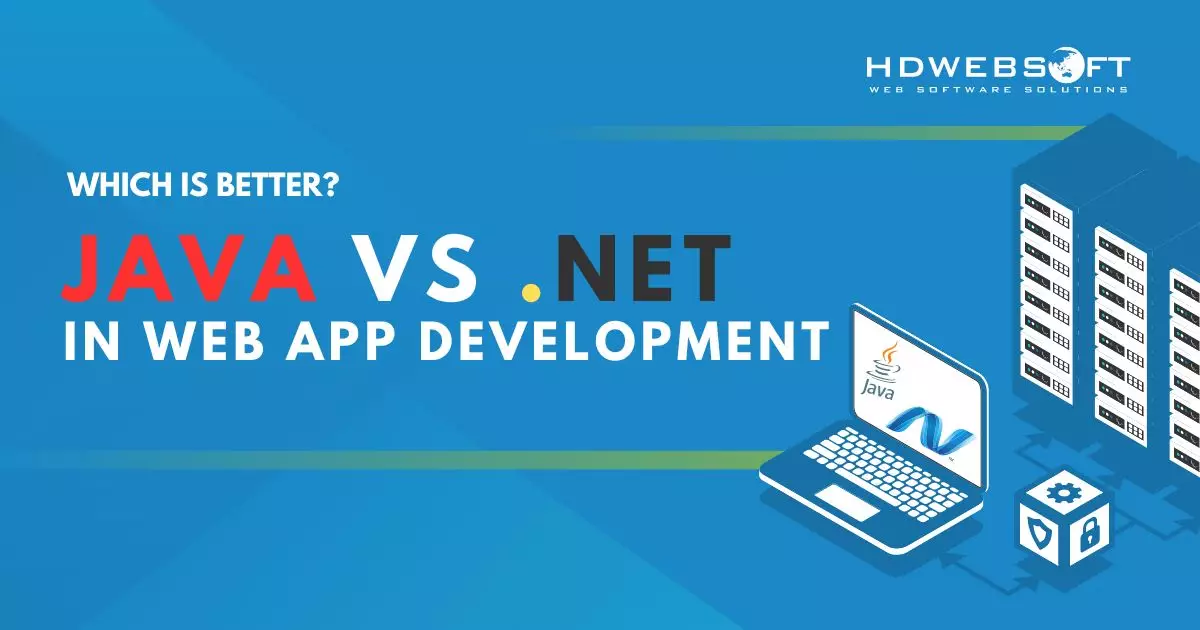
Java or .Net in 2024: What should I choose
Java vs .NET frequently clash in the programming scene and stick with the phrases Java and .NET in Web Application Development. Indeed, Microsoft discharged .NET (C#, explicitly) to contend with Java, which has a firm hang on numerous stage advancement ventures. In this blog, we will find out which is better for web development, Java or .Net.
What is Java?

Java is a free-to-use programming language valued for coding web development. Developed by Sun Microsystems (now part of Oracle Corporation), Java’s key feature is its ability to write code once and execute it seamlessly across multiple systems.
This ability makes Java a top choice for many developers, from web development to mobile apps and more. So, this programming language become the hot pick for coding of any scale from mobile apps and enterprise software because it’s fast, secure, and reliable.
In fact, 30.5% of developers preferred Java as a commonly-used programming language in 2023.
One of the reasons Java offers freedom in coding is because the language is supported by a rich array of libraries, frameworks, and tools.
What is .NET?

.NET is a handy free platform that lets developers build desktop, web, and mobile apps that work smoothly on any operating system. It provides a bunch of tools, libraries, and languages to make it easy for developers to create modern, scalable, and speedy software.
In fact, dot net is the most used framework and library, trusted by 42.3% of developers around the world.
When you use .NET, you’re actually using a bundle of programs that handle important tasks such as:
- Converting your C# code into commands that computers can follow and execute.
- Providing handy tools for software creation, like features to showcase text on-screen and retrieve current system time.
- Establishing a range of data types to streamline storing different kinds of information in your programs, such as text, numbers, and dates.
Java or .Net: Which one is better for web development?
Java Development vs .Net Development, when it’s time to find a developer, you will find a spellbound enthusiasm between the Java developers and .NET developers. These two stages both perform comparable capacities, so it’s dependent upon you to choose which you need to utilize. Here are a few likenesses and contrasts to enable you to choose when you are considering them as part of your web application development project.
Learn more about our Java Development Services and Dot Net Development Services.
The Basics of Java and .NET
Java is a lot more seasoned language than the .NET stage. However, it’s about the exhibition. The .NET stage is an assemblage of two noteworthy languages: VB.NET and C# explicitly contend with Java since, at that time, Java was at the forefront of application development.
If you have programming that is over 10 years old, odds are you’ll require a Java developer to help maintain the code. Java was considerably more typical in the mid-2000s until .NET’s presence in 2000, and it has for some time been the foundation for most Microsoft applications.
Both of these languages support work area and server applications, and Java is the essential coding language for Android applications. Android improvement has developed into substantially more than straightforward Java coding, yet Java is the establishment for Android and any application available.
If you need to fabricate a work area application (either for workstations or servers), Java and .NET are both suitable choices. This can make it a troublesome choice for new customers who aren’t acquainted with the subtleties of every language.
For the remainder of this area, we’ll examine the .NET language as the C# language for examination with Java. VB.NET is likewise a .NET language. however, it’s nearer to the inheritance Visual Basic language of the 1990s so we’ll concentrate on C#.
Similarities in Java and .Net
Since developers explicitly assembled C# as a contender to Java, there are numerous likenesses between the two languages. Indeed, even the .NET structure has a few similitudes with Java.
Object-oriented
Both Java and .NET (C# and VB.NET) are object-arranged languages. This implies you can completely utilize classes, legacy, and polymorphism in your undertaking. It likewise makes your code increasingly particular, so you can take classes from your present venture and use them with future activities.
Modular
Both .NET and Java back downloading and introducing outside conditions from different coders into your venture to make advancement quicker. Simply ensure these conditions are kept up to date by the outside developer.
Wide scope of target platforms
Developers can utilize both languages for web, desktop, or mobile development. For versatile applications, Java is Android and .NET is mostly Windows portable programming.
Similar Syntax
Because both Java and C# are derived from C and C++, the two of them have a comparative linguistic structure. They structure their sentences fundamentally as they do designing and writing a C++ project.
Severe confinements before deployment
Unlike C++, Java and C# check cluster records and variable statements to stay away from runtime blunders.
Java vs .Net: The differences
Similar to same as some other frameworks, even with the two language similitudes, you should represent their disparities. The distinctions make a developer a defender of one language over another. These distinctions will also characterize how your undertaking executes, which will then influence execution and similarity with different frameworks.
Deciphered vs compiled
Developers fundamentally structure their sentences by designing and writing a C++ project. Java operates as a compiled language, meaning developers don’t convert the code into “machine language” until they execute the software. This makes C# code a superior entertainer.
Target platforms
Although the two languages run on both Linux and Windows (later .NET redesigns enable it to run on Linux), it’s a general principle guideline that Java developers target Linux stages while .NET software engineers target Windows conditions.
LINQ
LINQ permits C# developers to compose inquiries legitimately inside the code as opposed to utilizing put-away strategies on the database server. Java has no LINQ equal.
Switch and strings
C# characteristically gives you a chance to utilize a switch proclamation on a string variable. Java 7 was the main discharge that permitted this idea, so more established Java frameworks won’t work with the current switch articulation sentence structure.
Keywords for information types
Both languages support information types, yet the catchphrases used to characterize them are unique.
Generics: C# has local nonexclusive information type support. Java attempted to include them as a “hack,” but it does not fully support them and is somewhat cumbersome compared to C#’s native implementation.
Java vs .Net – Which one should you choose?

So Java or NET – Which framework should you choose? It’s hard to figure out which language is best for your undertaking when both of these languages are reasonable to a general extent. Likewise, remember that when you address developers, you’ll get conclusions dependent on their inclinations and ranges of abilities.
Java can be used for web ventures. However, the .NET framework has taken over for web administrations and APIs, particularly for Windows API administrations. Java is mainly utilized for Linux stages, althoug it also run in a Windows situation. You’ll discover this is a hard inclination for most developers in the field, even though you may discover a few exemptions to the standard.
For work area applications (either for workstations or for servers), either language is adequate. Once more, most Windows developers prefer .NET since it is a local framework that is included with Windows. The framework’s libraries make it simple to work straightforwardly with the working framework, so it’s favored over Java. On the off chance that you choose to make your application accessible for a few working frameworks, Java may be the better choice.
Where to Use .NET and Java?
- .NET is used in many native operation systems such as web, desktop or mobile application
- Dot net used for web applications, client applications, enterprise development
- Net framework has been built for web services and Windows APIs.
- Java is designed for web projects, Big Data, and GUI Applications.
- This framework is used as the server-side programming language for backend development.
- Java is suitable for embedded systems, android applications, and web applications.
Conclusion
In short, it is generally easier to work with ASP .Net than with Java. If you plan to make your app available in different operating systems, Java might be a better choice. However, if you’re developing a medium-sized product for Windows, ASP .Net is a great solution.
The best way to choose is to contact several developers and survey which language best suits your goals. You can use both languages, but contacting the developer will allow you to find out which language is best suited for your project.









